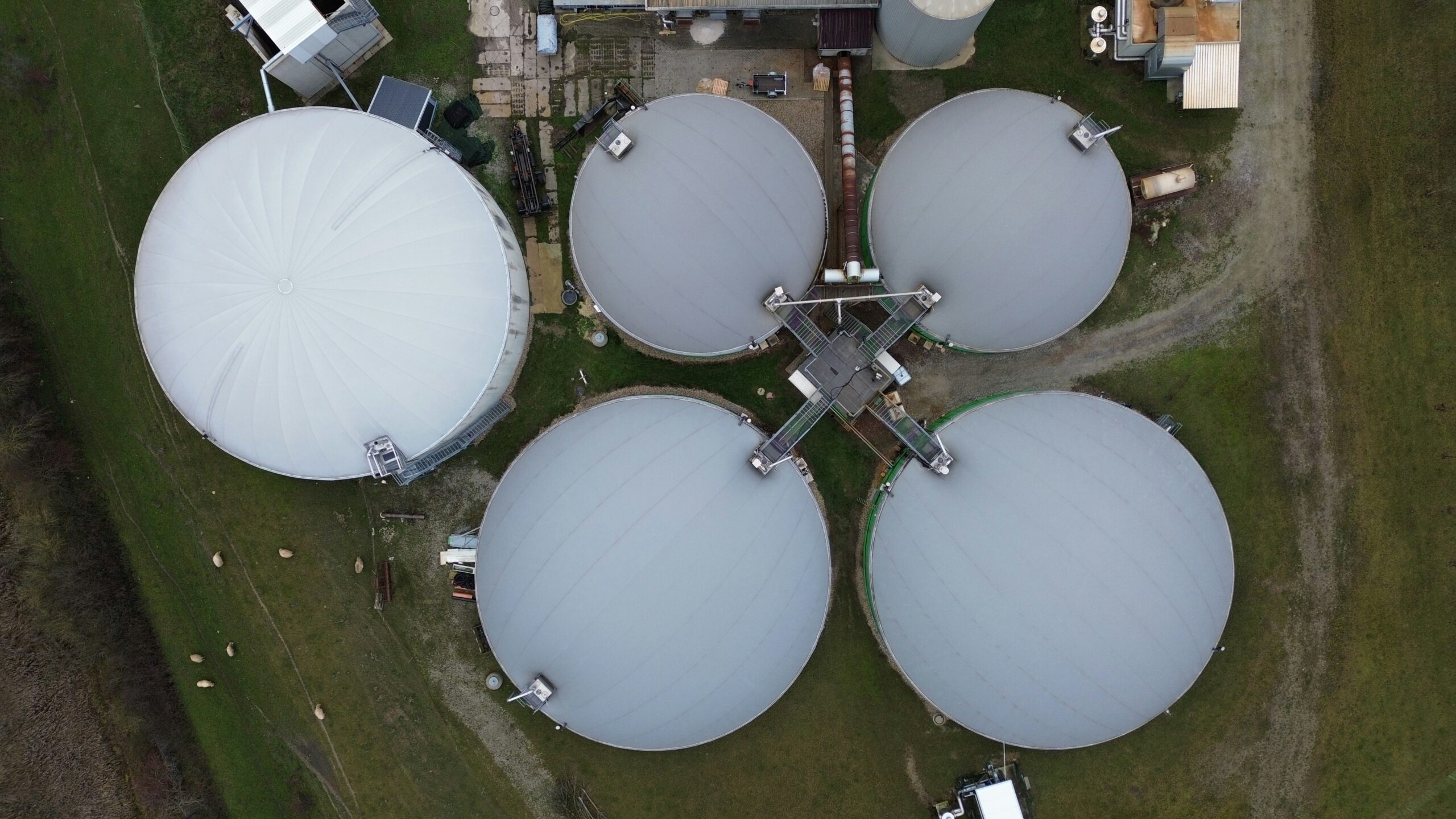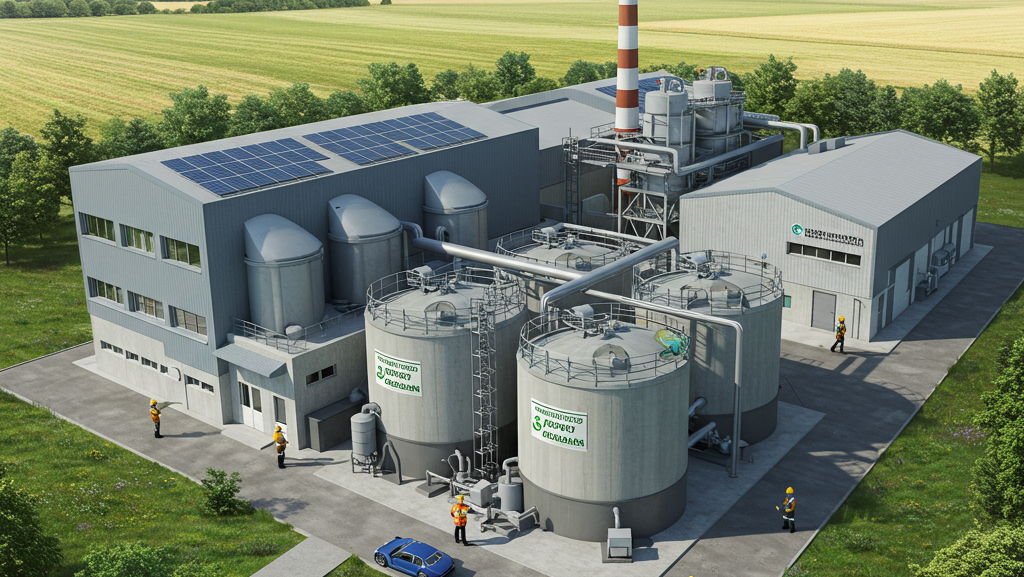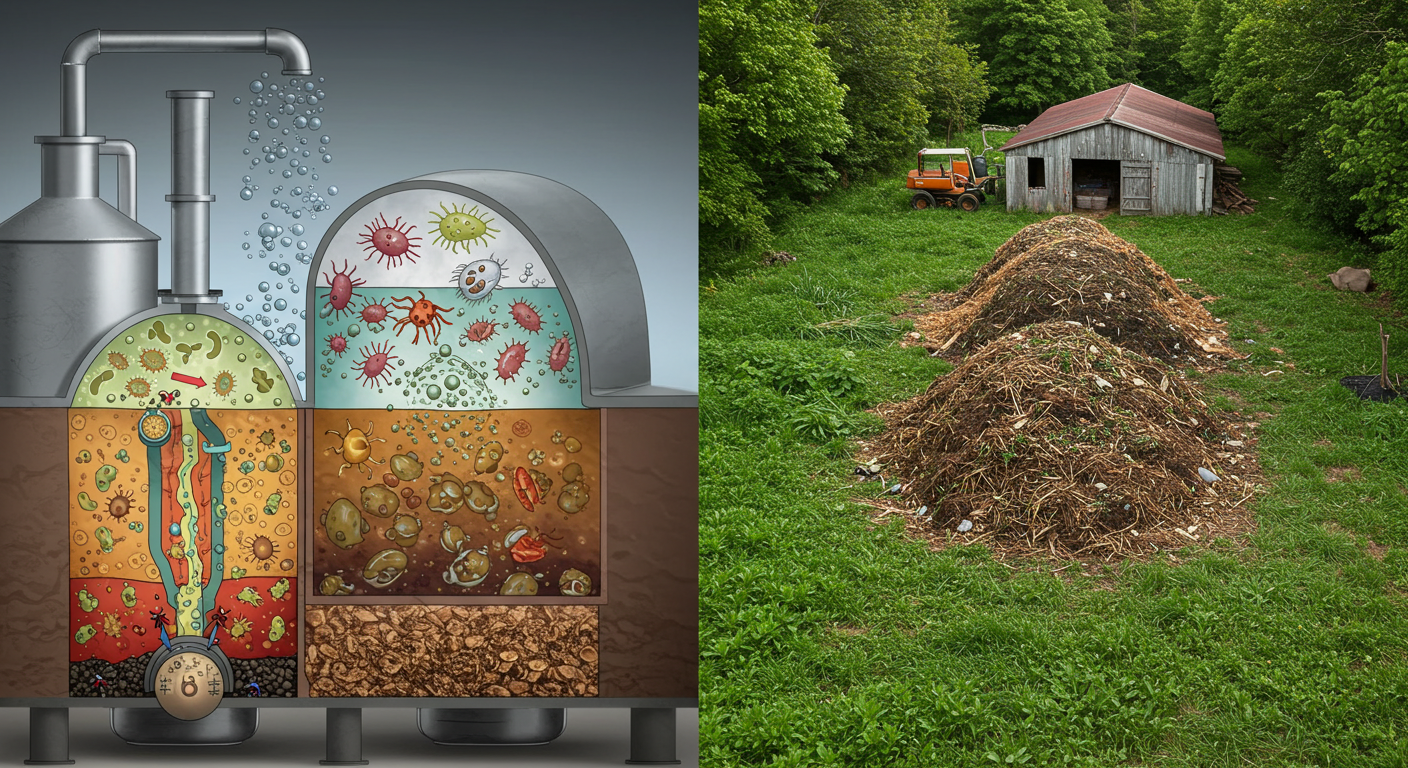Understanding Biogas: The Basics
Biogas is a renewable energy resource generated through the anaerobic digestion of organic materials, such as food waste, agricultural residues, and manure. This natural process occurs when microorganisms break down organic matter in the absence of oxygen, producing biogas, which primarily consists of methane and carbon dioxide. The versatility of biogas as an energy source makes it an attractive alternative to traditional fossil fuels, contributing to energy security and environmental sustainability.
The production of biogas involves several stages, beginning with the collection of biomass. Once the organic waste is gathered, it is placed in a biogas digester—a system designed to facilitate anaerobic digestion. Within this environment, specific bacteria thrive and decompose the organic material, resulting in the formation of biogas over time. This process not only converts waste into energy but also reduces the volume of waste, thereby lessening the environmental burden associated with landfills.
Utilizing biogas has significant environmental benefits. By replacing fossil fuels, biogas reduces greenhouse gas emissions, as methane, a potent greenhouse gas, is captured and utilized instead of being released into the atmosphere. Additionally, using biogas mitigates reliance on non-renewable energy sources, fostering a transition towards a more sustainable energy future. Biogas technology also supports the concept of a circular economy, where waste is recognized as a valuable resource rather than a disposal problem.
The relevance of biogas in addressing energy shortages cannot be understated. As demand for clean energy rises, biogas offers a consistent and viable solution for both urban and rural communities. Its production can empower local economies, create jobs, and support sustainable agricultural practices. Ultimately, biogas not only serves as a powerful energy source but also aligns with global efforts to achieve sustainable development goals.
Mupundu Energy’s Innovative Approach
Mupundu Energy is at the forefront of transforming organic waste into a sustainable energy source through innovative biogas technologies. The company’s approach involves capturing and bottling excess biogas efficiently, paving the way for both environmental and energy sustainability. By utilizing advanced anaerobic digestion techniques, Mupundu converts organic materials, such as agricultural waste and food scraps, into biogas—primarily consisting of methane. This process not only reduces the volume of waste but also harnesses an otherwise lost energy resource, which can be used to generate electricity or heat.
The collection of biogas begins in the company’s state-of-the-art biogas digesters. These digesters create optimal conditions for anaerobic bacteria to thrive, breaking down organic waste without the presence of oxygen. Mupundu Energy employs a carefully monitored system that ensures maximum efficiency and yield from the digestion process. The biogas produced is then captured and stored using advanced bottling techniques that prevent gas loss and ensure a reliable supply for energy production.
One of the standout features of Mupundu Energy’s operations is their commitment to sustainability and scalability. The company utilizes modular technology, allowing for the expansion of biogas facilities as demand grows. This flexibility not only enhances their capacity to produce energy from organic waste but also contributes to reducing greenhouse gas emissions. By integrating cutting-edge technology with eco-friendly practices, Mupundu Energy sets itself apart from competitors in the energy sector, emphasizing their role as a leader in biogas innovation.
Through these innovative methods, Mupundu Energy continues to demonstrate its dedication to creating an efficient and sustainable solution that captures the value in organic waste, thereby contributing to a circular economy while meeting energy demands.
Comparing Biogas to Traditional Fuels
The choice of fuel sources for cooking and heating purposes has significant implications for both environmental sustainability and household economics. Traditional fuels, such as charcoal and firewood, remain prevalent in many regions; however, they pose substantial environmental challenges, particularly concerning deforestation. Deforestation primarily results from the harvesting of trees for these fuel sources, which disrupts ecosystems and contributes to soil erosion and biodiversity loss. In contrast, biogas presents an innovative solution that utilizes organic waste to generate energy, thereby mitigating the negative impacts associated with conventional fuels.
Biogas stands out as a cleaner and renewable energy option. Unlike charcoal and firewood, which emit harmful pollutants when burned, biogas combustion produces significantly lower emissions, contributing to improved air quality. This is particularly vital in areas where indoor air pollution is a major health concern, as traditional fuels can lead to respiratory issues and other health complications. Moreover, the use of biogas helps in waste management by converting organic waste materials into valuable energy, thus addressing two critical challenges at once: waste disposal and energy provision.
Affordability is another important factor in the comparison between biogas and traditional fuels. While the initial costs of setting up a biogas digester may seem daunting, the long-term savings can be considerable. Biogas is often less expensive than charcoal over time, which makes it an economically viable option for households seeking to reduce their energy expenditures. Additionally, the consistent availability of biogas, as it relies on organic waste rather than depleting natural resources, adds further security and predictability to energy costs.
In conclusion, shifting from traditional fuels to biogas not only offers economic benefits but also promotes environmental sustainability and public health. The integration of biogas into households represents a progressive step towards a cleaner and more sustainable energy landscape.
Future Prospects and Community Impact
Mupundu Energy’s innovative approach towards biogas technology presents a transformative opportunity for local communities, contributing significantly to both community development and environmental sustainability. The utilization of biogas not only offers a cleaner cooking solution but also aims to reduce dependence on traditional, unsustainable fuel sources such as firewood and charcoal. By shifting to biogas, households can minimize their exposure to indoor air pollution and the environmental degradation often associated with deforestation.
Moreover, the implementation of biogas systems serves to empower communities by encouraging local ownership and involvement in energy production. This empowerment fosters economic self-sufficiency as communities can produce their own energy, reducing energy costs and reliance on external suppliers. The health benefits associated with cleaner cooking methods further enhance the quality of life for community members, particularly for women and children, who are often the primary users of household cooking fuels.
Looking ahead, Mupundu Energy envisions expanding its biogas model to reach more households, thus amplifying its positive impact. By scaling its operations, Mupundu could play a pivotal role in achieving national energy goals, promoting a shift toward sustainable energy practices across the region. Demonstrating the effectiveness of biogas technology at a larger scale could also inspire similar initiatives in other communities, thereby broadening the scope of renewable energy implementation.
Additionally, Mupundu is actively exploring future innovations to enhance its biogas technology, potentially increasing efficiency and accessibility. Such advancements could involve integrating modern technologies that optimize production processes or provide real-time data on energy output. This focus on continuous improvement aligns with the global shift toward renewable energy solutions, positioning Mupundu as a leader not only in biogas but in the broader context of sustainable development.





